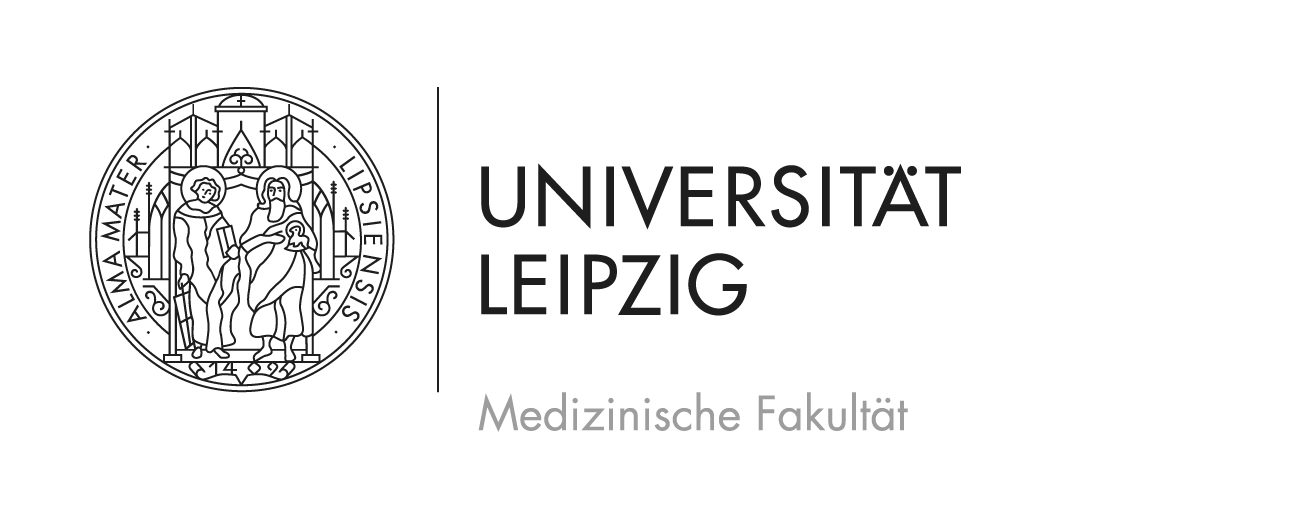
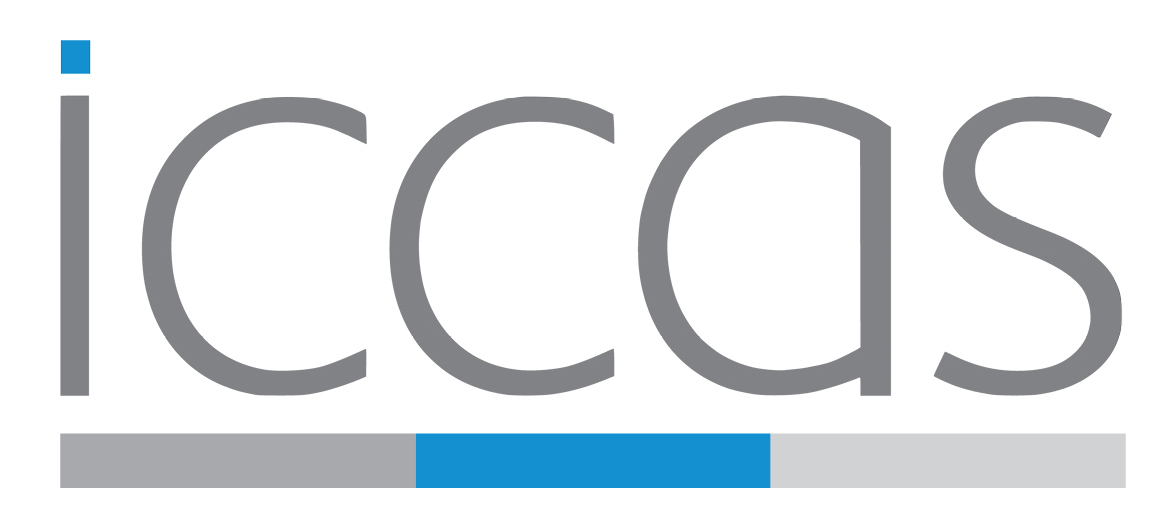
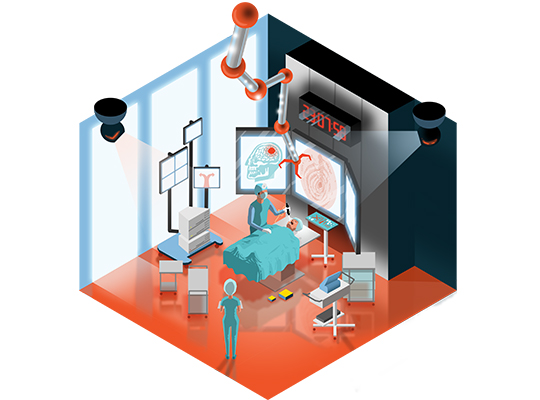
Research Area: Model-based medicine and intelligent operating room Leader: Prof. Dr. Thomas Neumuth
Rapid advances in information and communication technologies in the field of medical devices are significantly changing the demands placed on modern surgical workplaces. The Model-based Automation and Integration (MAI) research field involves developing a “smart” operating theater: adapted to the needs of surgeons, its technology can be used effectively thanks to the systems’ compatibility with each other. The goal of this integrated workplace is the qualitative and quantitative improvement of surgical procedures by reducing non-productive secondary work and increasing patient safety through surgical workflow management.
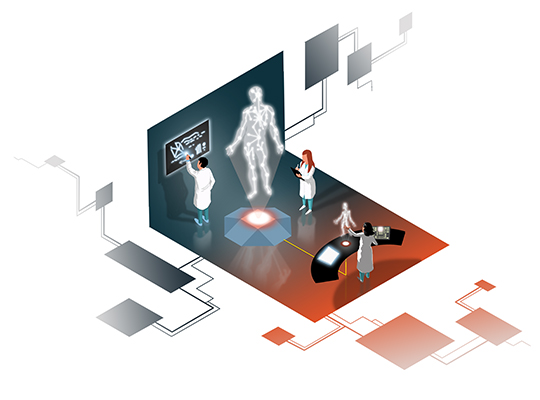
Research Area: Model-based medicine and intelligent operating room Leader: Prof. Dr. Thomas Neumuth
The growing number of medical examination options and forms of therapy for complex diseases necessitates more patient-specific therapeutic decisions and processes, so as to increase the likelihood of a better clinical outcome. This is complicated significantly by the amount and variety of patient data collected and the fragmented way in which this information is stored, not to mention the variety of treatment options available. The Personalized Medicine research field addresses these problems by modelling therapeutic decision processes and developing decision support systems, patient-specific therapy process models, methods for extracting and structuring relevant information from patient files, and standardized information models.
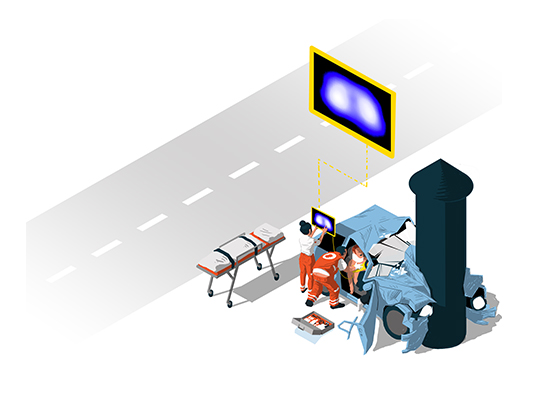
Research Area: Model-based medicine and intelligent operating room Leader: Prof. Dr. Thomas Neumuth
The Life Support Systems (LSS) research unit investigates innovative, non-invasive methods for diagnosing and monitoring the progression of lung damage, with further organ dysfunctions planned for the future. The current focus is on the further development of electrical impedance tomography (EIT) for the patient-specific visualization of lung function, with a particular emphasis on practicability in emergency situations in and outside of hospitals. The research unit is also concerned with the quantitative analysis of CT scans for the numerical assessment of pulmonary ventilation disorders, which goes beyond the visual evaluation of CT slices. Collaboration with medical technology manufacturers facilitates the transfer of research results into clinical medical devices.